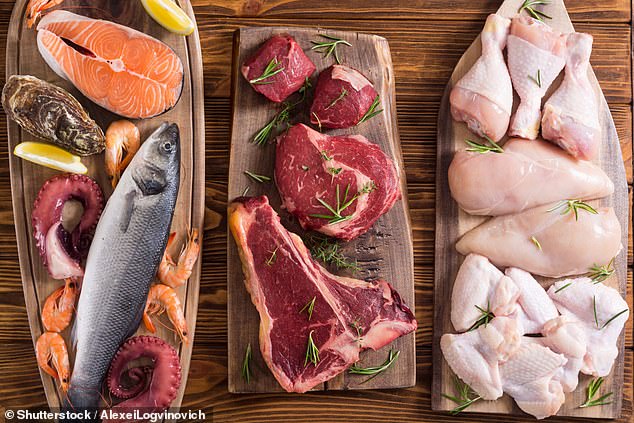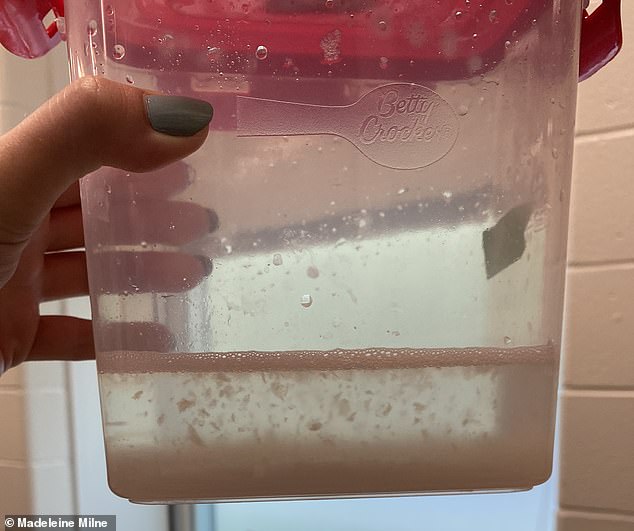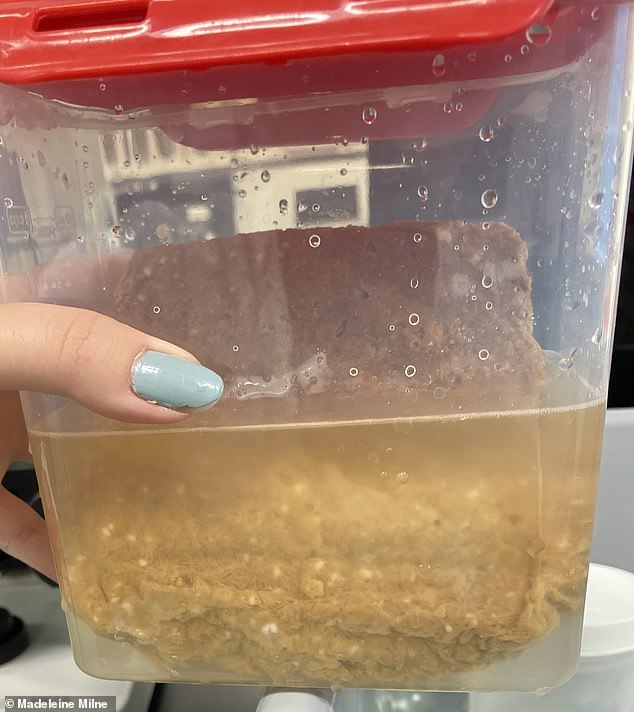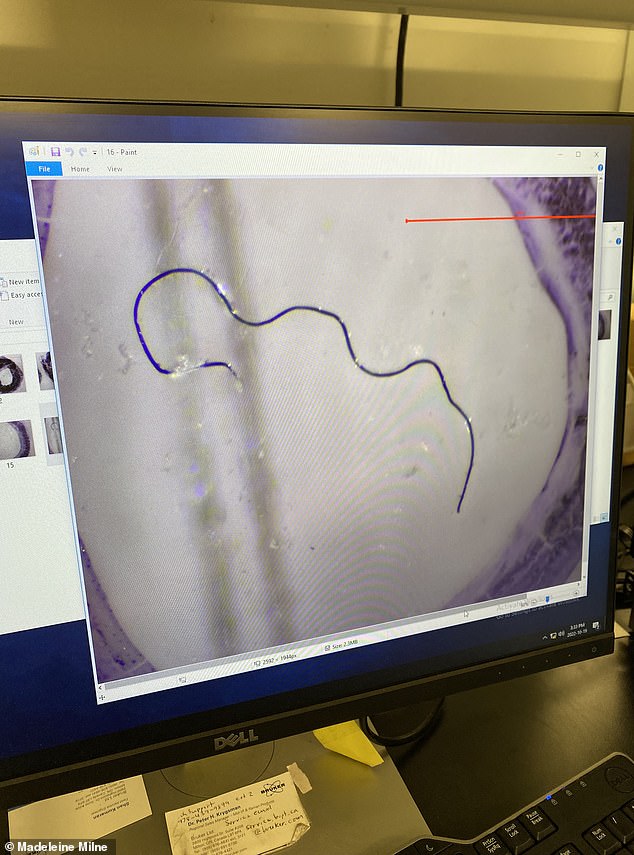Now scientists discover that 90% of all burgers, steaks, chicken and plant-based foods contain cancer-causing microplastics
Most meat and plant-based alternatives contain small plastic pieces linked to cancer, according to a study which comes a day after bottled water was found to be packed with toxins.
Scientists tested 16 types of protein – including chicken nuggets, steaks, fish fillets and plant-based burgers – showing that people consume plastic regardless of the protein source they choose.
Ninety percent of the products contained nanoplastics, which scientists fear could build up in your vital organs with unknown health consequences.
One sirloin steak contained 90 rubber particles, while two plant-based beef samples contained 40 and 25 rubber particles.

Ocean Conservancy scientists tested 16 types of proteins, including chicken nuggets, steaks, fish fillets and plant-based burgers, suggesting people are consuming plastic regardless of the protein source they choose


A new study has found that 90 percent of the meat and plant-based alternatives Americans consume are full of small pieces of plastic
The tiny particles have been linked to the development of cancer, heart disease and dementia, as well as fertility problems.
Researchers have speculated that food is contaminated by equipment used during food production and distribution, by packaging, added ingredients, or by airborne particles.
“This is a startling reminder of how prolific plastic pollution has become – people live on land, and yet seafood samples are just as likely to be contaminated with plastic as terrestrial proteins,” said study co-author Dr. Britta Baechler, a researcher. marine biologist and Associate Director of Plastics Science at Ocean Conservancy, a nonprofit health group in DC.
‘And there’s no way around it, no matter what you eat, it seems.
“The plastic pollution crisis affects us all, and we must take action to tackle its many forms,” she added.
Ocean Conservancy, a team of scientists who advocate for the oceans, collaborated with scientists from the University of Toronto on this study.
The team purchased protein and plant samples from two grocery stores in the Portland, Oregon, area for the experiment.
This was done because Americans are more likely to consume store-bought food that has been processed and packaged before it reaches their dinner table, according to the study published in the journal Environmental Pollution.
Store-bought samples include three types of shrimp, regular and plant-based chopped pollock sticks, Alaska Pollock, regular and plant-based chicken nuggets, sirloin steak, pork loin chops, chicken breasts, plant-based ground beef and tofu blocks.


According to the study, microplastic contamination can result from airborne particles or during food production and distribution. In the photo a plant-based burger is being tested
The samples were placed in a solution, decomposed for 24 hours and soaked in a detergent to remove the remaining greasy material.
Researchers looked at 124 randomly selected samples from the decomposed food sources to determine the amount and type of microplastics.
All 16 protein products contained microplastics and were present in 88 percent of the total samples, including plant proteins and seafood.
Fibers were found in almost half of food sources, while plastic fragments accounted for about a third of microplastics.
The team said the way microplastics end up in our food is still unclear, but suggested the particles are released in factories where the items are processed and packaged before being sent to stores.


Microplastics were found in all 16 store-bought food samples and found that Americans could consume up to 3.8 million microplastics annually
“It’s tempting to want to draw conclusions like ‘eat less of this and more of that’ to avoid microplastics in your diet, but at this point we still know very little about the microplastic burden in commonly consumed foods,” says lead author Madeleine . Milne, who conducted the research at the University of Toronto’s Rochman Lab in 2022.
She added that there is still a need for additional research to understand how widespread the problem is and to determine where the microplastics come from and how microplastic consumption affects human health.
“As ocean scientists, my co-authors and I are deeply concerned about the growing plastic crisis in the world’s oceans,” said Dr. George Leonard, Ocean Conservancy’s chief scientist and co-author of the study.
‘But our research shows that plastics in our food go far beyond fish and shellfish and also include a wide variety of other protein sources.
“Our work is a call to action to reduce plastic pollution in its many forms to ensure a safe and healthy food supply for all consumers.”
Dailymail.com has contacted Ocean Conservancy for comment.
